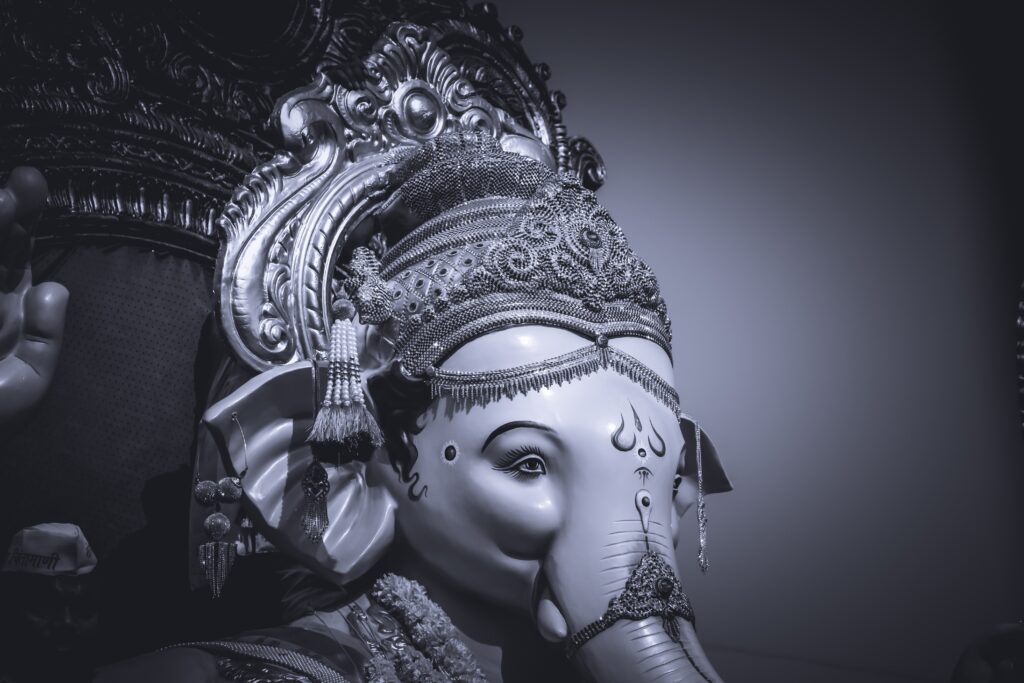In the article “The Importance of the Ayodhya Ram Temple for Personal Growth,” Sadhguru discusses the grounds for building the Ram temple at Ayodhya. He addresses the obsession and frenzy surrounding the temple, highlighting that if someone remains an inspiration for millions of people after thousands of years, there must be a significant reason. He also emphasizes that the temple represents devotion and the settlement of real estate issues for those who love Ram. However, he acknowledges that the issue has been divisive over the years, causing bloodshed and conflict, which he believes is unnecessary. Sadhguru further explains that in Hindu culture, temples are not just places of prayer but also houses of different energetic forms that are meant to transform individuals and open dimensions in their lives. He encourages understanding and acceptance of various belief systems and emphasizes the aspiration to rise above limitations and become divine, a concept that is deeply woven into the fabric of this culture.

The Significance of the Ayodhya Ram Temple
Historical importance of Ayodhya
Ayodhya holds immense historical importance in India, as it is believed to be the birthplace of Lord Ram, a revered figure in Hindu mythology. The city is mentioned in ancient texts and scriptures, and it has been a site of pilgrimage for centuries. Its significance lies in its association with Lord Ram and the events depicted in the epic Ramayana, which holds great cultural and religious value to millions of people. Ayodhya is not just a city, but a sacred place that carries the weight of centuries of history.
Religious significance of Lord Ram
Lord Ram is considered an incarnation of Lord Vishnu by Hindus, and his life and teachings hold profound religious significance. He is seen as the epitome of righteousness, virtue, and moral values. His journey, as depicted in the Ramayana, serves as a guide for individuals seeking spiritual growth and enlightenment. Lord Ram’s story has been passed down through generations, serving as a source of inspiration and devotion for millions of people. The Ayodhya Ram Temple stands as a symbol of this religious significance, honoring Lord Ram and allowing devotees to connect with him on a spiritual level.
Cultural and emotional attachment to the temple
The Ayodhya Ram Temple goes beyond mere religious significance and holds a deep cultural and emotional attachment for many people in India. The temple is more than just a place of worship; it represents a sense of pride, identity, and heritage. For centuries, it has been a site of pilgrimage, attracting devotees from all over the country. The temple is believed to be the birthplace of Lord Ram and has been at the center of a long-standing dispute. The emotional attachment to the temple is rooted in a sense of connection to one’s roots, ancestors, and the preservation of cultural heritage.
Understanding Personal Growth
Definition and concept of personal growth
Personal growth refers to the process of self-improvement, self-awareness, and self-transformation. It involves developing one’s skills, knowledge, and abilities, as well as enhancing emotional and spiritual well-being. Personal growth is a lifelong journey that involves introspection, learning, and self-reflection. It encompasses various aspects of life, including career, relationships, spirituality, and overall well-being.
Importance of personal growth in overall well-being
Personal growth plays a crucial role in achieving overall well-being and fulfillment in life. As individuals strive to improve themselves, they gain a deeper understanding of their strengths, weaknesses, and values. This self-awareness allows them to make informed decisions, set meaningful goals, and lead a purposeful life. Personal growth leads to increased self-confidence, resilience, and emotional intelligence, enabling individuals to navigate life’s challenges with ease. It also promotes healthy relationships, professional success, and a sense of fulfillment.
Factors influencing personal growth
Personal growth is influenced by various factors, including mindset, environment, experiences, relationships, and personal choices. A growth mindset, characterized by a belief in one’s ability to learn and grow, is essential for personal development. The environment in which an individual lives and works, including family, community, and culture, can either foster or hinder personal growth. Experiences, both positive and negative, provide opportunities for learning and self-reflection. Similarly, the quality of relationships and personal choices, such as seeking new experiences, taking risks, and embracing challenges, contribute to personal growth.

Linking the Temple and Personal Growth
The spiritual connection to Ayodhya Ram Temple
The Ayodhya Ram Temple holds a profound spiritual connection for millions of people. It is seen as a sacred place where devotees can connect with the divine presence of Lord Ram. The temple acts as a spiritual anchor, providing solace, guidance, and a sense of peace to those who visit it. The serene atmosphere, religious rituals, and collective prayers create an environment conducive to personal introspection and spiritual growth. The temple symbolizes the union of the divine and the human, inspiring individuals to embark on their own personal journeys of self-discovery and transformation.
Impact of religious practices on personal growth
Religious practices associated with the Ayodhya Ram Temple, such as prayer, meditation, and devotional singing, have a profound impact on personal growth. These practices help individuals cultivate a deeper sense of connection with the divine and develop a closer relationship with their inner selves. Regular religious practices foster qualities such as discipline, patience, gratitude, and compassion, which are essential for personal growth. They provide individuals with a sense of purpose and direction, enabling them to align their actions with their beliefs and values.
The role of faith and devotion in personal transformation
Faith and devotion are integral aspects of personal transformation. Believing in a higher power and surrendering to that power can bring about profound changes in an individual’s life. Faith acts as a guiding force, instilling hope, resilience, and determination in the face of challenges. Devotion, expressed through rituals, acts of service, and selflessness, opens the heart and fosters a sense of connection with something greater than oneself. Through faith and devotion, individuals can experience personal growth by transcending their limited self-identity and embracing a higher purpose.
Inspiration from Lord Ram
Lessons from Lord Ram’s life
Lord Ram’s life is filled with valuable lessons that can inspire personal growth and transformation. His unwavering commitment to righteousness, integrity, and moral values serves as a guiding light for individuals seeking to live meaningful lives. Lord Ram’s ability to make difficult choices, stay true to his principles, and lead by example teaches us the importance of integrity and ethical conduct. His compassion, empathy, and forgiveness towards others remind us of the power of love and kindness in personal growth and relationships. Lord Ram’s life holds timeless wisdom that can guide individuals on their journey of self-improvement and personal development.
Resilience and determination in the face of challenges
Lord Ram’s life is full of challenges, trials, and tribulations. From being exiled from his kingdom to facing fierce battles, he encountered numerous obstacles throughout his journey. However, he displayed unwavering resilience, determination, and courage in the face of adversity. Lord Ram’s ability to overcome challenges serves as a powerful reminder that personal growth often requires facing and overcoming obstacles. His perseverance and unwavering faith in the face of hardships inspire individuals to develop resilience and embrace challenges as opportunities for growth.
The power of righteousness and moral values
Lord Ram’s unwavering commitment to righteousness and moral values is a cornerstone of his character. He exemplifies qualities such as honesty, integrity, compassion, and justice, which serve as a moral compass for individuals seeking personal growth. Lord Ram’s adherence to dharma, or righteous duty, teaches us the importance of living in alignment with our values and principles. His actions inspire individuals to strive for ethical conduct and make choices that are guided by a sense of righteousness. The power of righteousness and moral values is essential for personal growth, as it leads to a life of integrity, authenticity, and fulfillment.

Devotion and Personal Growth
Exploring the concept of devotion
Devotion is a deep sense of reverence, love, and commitment towards a higher power or a spiritual path. It involves surrendering one’s ego and personal desires in favor of a greater purpose. Devotion is characterized by selflessness, humility, and a sense of service. It is an expression of love and gratitude towards the divine, fostering a deep connection and sense of belonging. Devotion is a powerful force that can inspire personal growth by transforming one’s perspective, values, and actions.
The transformative effects of devotion on individuals
Devotion has transformative effects on individuals, influencing their thoughts, emotions, and behaviors. By cultivating devotion, individuals experience a shift in their consciousness and perception of the world. Devotion instills a sense of purpose, meaning, and connection, making individuals feel part of something greater than themselves. It allows them to transcend their limited self-identity and align their actions with the values and teachings of their chosen spiritual path. Devotion brings about a deeper understanding of oneself and fosters personal growth by nurturing qualities such as love, compassion, humility, and selflessness.
How devotion can lead to personal growth
Devotion plays a crucial role in personal growth by guiding individuals on their spiritual journey. It provides a sense of direction, purpose, and motivation. Devotion encourages individuals to cultivate qualities such as mindfulness, self-discipline, and detachment, which are essential for personal growth. By surrendering to a higher power or a spiritual path, individuals let go of their ego-driven desires and attachments, allowing them to experience personal transformation. Devotion inspires individuals to live with gratitude, compassion, and love, fostering personal growth and well-being.
Emotional and Psychological Benefits
Sense of belonging and identity
Religious practices associated with the Ayodhya Ram Temple provide individuals with a sense of belonging and identity. The shared rituals, prayers, and traditions create a sense of community and unity among devotees. The temple acts as a gathering place where individuals connect with like-minded people and share a common bond of faith. This sense of belonging fosters emotional well-being, as individuals feel accepted, understood, and supported by their community. It enhances their sense of identity and purpose, contributing to their overall psychological well-being.
Healing and emotional support from religious practices
Religious practices, such as prayer, chanting, and meditation, offer emotional support and healing to individuals. These practices provide a safe space for individuals to express their emotions, seek solace, and find comfort in times of distress. The Ayodhya Ram Temple, with its serene atmosphere and spiritual energy, offers devotees a sanctuary where they can find peace, release their burdens, and experience emotional healing. The collective prayers and rituals create a sense of shared emotional support, fostering a sense of resilience and well-being.
Positive impact on mental well-being
Engaging in religious practices associated with the Ayodhya Ram Temple has a positive impact on mental well-being. The practices promote mindfulness, stress reduction, and emotional regulation. Prayer, meditation, and devotional singing help individuals cultivate a sense of inner calm, clarity, and peace. Regular engagement in these practices has been shown to lower anxiety, improve mood, and enhance overall mental well-being. The Ayodhya Ram Temple provides a sacred space where individuals can find solace, connect with their inner selves, and experience a sense of spiritual well-being.
The Ayodhya Ram Temple and Collective Growth
Uniting communities through shared religious beliefs
The Ayodhya Ram Temple serves as a unifying force that brings together individuals from different communities who share a common religious belief. Despite the historical conflicts and disputes surrounding the temple, it has the potential to bridge divides and foster a sense of unity among people. The temple provides a platform for communities to come together, engage in collective rituals, and celebrate their shared heritage. It encourages dialogue, understanding, and respect between different religious and cultural groups, leading to collective growth and harmony.
Promoting social harmony and peace
The Ayodhya Ram Temple has the power to promote social harmony and peace by creating an inclusive and accepting environment. The temple serves as a symbol of religious tolerance and mutual respect, showcasing the diversity and pluralism of Indian society. By embracing the teachings of Lord Ram, which promote love, compassion, and justice, the temple becomes a catalyst for social change and progress. It invites individuals from all walks of life to come together, transcend their differences, and work towards a more harmonious and egalitarian society.
Education and enlightenment through temple activities
The Ayodhya Ram Temple is not just a place of worship; it also serves as an educational and cultural center. The temple organizes various activities, such as lectures, discourses, and cultural performances, that promote learning, enlightenment, and artistic expression. These activities provide individuals with an opportunity to deepen their understanding of religious and cultural traditions, as well as engage in intellectual and spiritual growth. The temple becomes a hub of knowledge, creativity, and inspiration, contributing to both personal and collective growth.
Preserving Cultural Heritage
The historical and architectural significance of the temple
The Ayodhya Ram Temple holds immense historical and architectural significance. It is believed to have been constructed centuries ago, making it a testament to the rich cultural heritage of India. The temple’s architectural style reflects the craftsmanship and artistic prowess of the time. Its intricate carvings, ornate decorations, and sacred symbols tell the story of a bygone era. Preserving the temple is crucial for safeguarding this cultural heritage and passing it on to future generations.
Role of the temple in preserving cultural heritage
The Ayodhya Ram Temple plays a vital role in preserving India’s cultural heritage. It serves as a physical embodiment of the country’s traditions, values, and artistic achievements. The temple serves as a repository of ancient scriptures, religious practices, and rituals that have been passed down through generations. By upholding and maintaining the temple, individuals and communities contribute to the preservation of cultural heritage and ensure that future generations can continue to learn, appreciate, and celebrate their rich cultural legacy.
Impact of cultural preservation on personal and societal growth
Preserving cultural heritage, such as the Ayodhya Ram Temple, has a profound impact on personal and societal growth. Cultural preservation instills a sense of pride, identity, and rootedness in individuals. It connects them to their history, ancestors, and collective memory, fostering a deeper understanding of their cultural identity. The temple acts as a point of reference, allowing individuals to learn from the past and shape their future. By preserving cultural heritage, societies create a strong foundation for personal and societal growth, rooted in a shared sense of identity, values, and traditions.
Building a Stronger Sense of Community
Promoting volunteerism and service to humanity
The Ayodhya Ram Temple serves as a catalyst for volunteerism and service to humanity. Devotees actively engage in various social and humanitarian activities, such as organizing food drives, providing healthcare services, and supporting educational initiatives. The temple serves as a platform for individuals to come together and contribute to the well-being of society. By promoting volunteerism and service, the temple fosters a stronger sense of community and encourages individuals to prioritize the welfare of others, leading to personal growth and social transformation.
Fostering a sense of belonging and unity
The Ayodhya Ram Temple fosters a sense of belonging and unity among its devotees. The collective prayers, rituals, and celebrations create a shared sense of purpose and connection. The temple becomes a place where individuals can find acceptance, support, and a sense of belonging. It transcends differences of caste, creed, and social status, bringing people together in a spirit of unity and oneness. This sense of belonging strengthens the social fabric, promoting cooperation, empathy, and interdependence among individuals and communities.
Spreading compassion and empathy through community engagement
The Ayodhya Ram Temple serves as a platform for individuals to engage in acts of compassion and empathy. The teachings of Lord Ram emphasize the value of service to others and the importance of treating all beings with kindness and respect. The temple encourages its devotees to practice these teachings in their daily lives, fostering a culture of compassion, empathy, and social responsibility. By engaging in community service and acts of kindness, individuals deepen their connection with others, experience personal growth, and contribute to the welfare of society.
Conclusion
The Ayodhya Ram Temple holds immense significance in terms of history, religion, culture, and personal growth. It serves as a place of worship, inspiration, and spiritual growth for millions of people. The temple’s association with Lord Ram and the events of the epic Ramayana provides individuals with valuable lessons and teachings that can inspire personal transformation. The Ayodhya Ram Temple also plays a crucial role in preserving cultural heritage, promoting social harmony, and fostering a sense of community. It serves as a reminder of the enduring legacy of Lord Ram and the values he represents, ensuring that future generations can continue to embrace these teachings and embark on their own journeys of personal growth and enlightenment.

